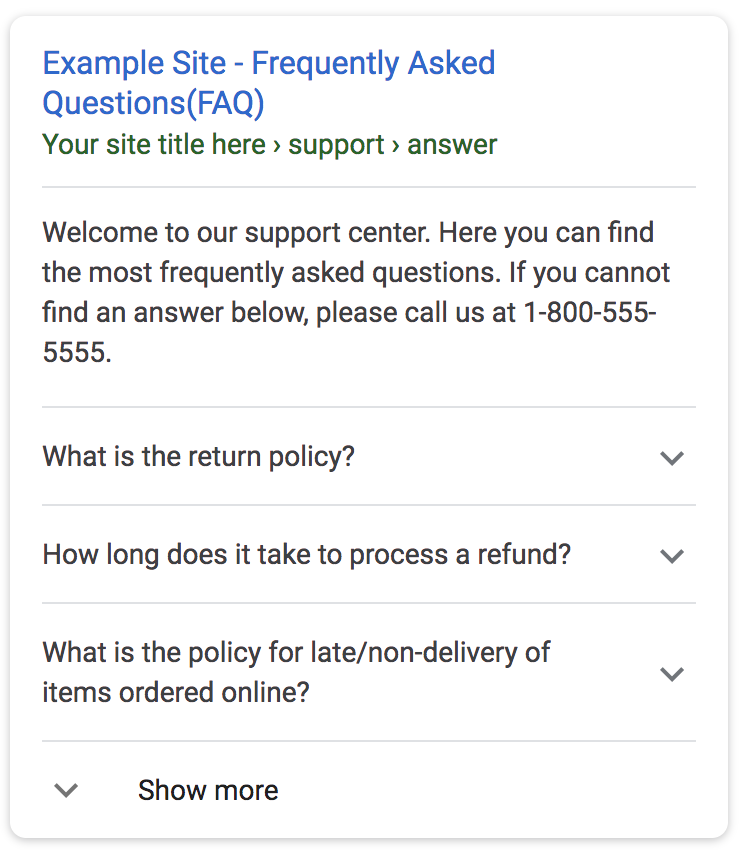Google to remove a site’s FAQ Rich Results; here is why

Traditionally, Google’s search results are seen as 10 blue links appearing on the screen. When users searches for something on the search engine, Google analysis and returns 10 links to ten different web pages. Google now displays what are known as ‘Rich Results’. However, there are certain search results that are not just links. John Mueller of Google describes why a website can lose all of the FAQ rich results snippets in a Google SEO Office-hours chat.
What exactly are “Rich Results”?
These kind of search results provide information that immediately responds to the search query. Users will like this since they will not have to click to obtain a quick solution. However, if the user is conducting in-depth research, they may go to the web page to get a more thorough answer to their question.
What are FAQ Rich Results, and how can you get them?
Google provides with links to a web page’s frequently asked questions (FAQs). Rich results from FAQs can help a website take up two or three spots in the search results. That is what makes an outcome like this attractive. A web page must have correctly coded structured data in order to provide these kind of rich results in Google.

Why Is Google Getting Rid of Rich Results?
All of the FAQ rich results for the individual who asked the query were removed from Google’s search results. The removal of the FAQ rich results seemed like a punishment, and a huge number of users wanted to inquire why Google hadn’t notified them of an issue before the removal. One question that has constantly come to light has been:
“What reasons might cause Google to remove all FAQ snippets from a site without providing a warning in search console?”
“We don’t guarantee any rich results. So it’s not that we would provide a warning per se …for any kind of rich result type in search. But rather, when you use the correct markup you’re eligible to be shown.” “The amount of FAQ-rich search results that Google displays has a tendency to vary, John Mueller answered.
“And it can happen that we show a lot of these rich results for your website and maybe we’ll scale them back over time, maybe we’ll scale that up again over time.It can also happen that we turn them off completely. When it comes to rich results we have different levels that we look at. On the one hand it has to be technically implemented properly.On the other hand it has to be compliant with our policies,” adds Mueller.
“In general Google has algorithms that try to understand the policies and try to kind of… enact… we think about when it comes to rich results is that we need to make sure that the website’s quality overall is okay. And understanding a website’s quality, that changes over time and in particular when it comes to things like core updates, that can change. So if you saw this change… around when we launched a core update then it might be that our algorithms of have kind of refined what we think of your website, how we kind of see that fit in, how relevant we think that is for certain queries. And based on that, maybe rich results are not shown anymore. There’s also the option that there was something so bad with regards to the structured data on the page that the web spam team took a manual action. But that’s something that’s really rare. And that would be something you’d get a notification on in search console.”
Based on user demands (relevance) and site quality problems, John Mueller provided a detailed explanation of why Google eliminates rich results.







